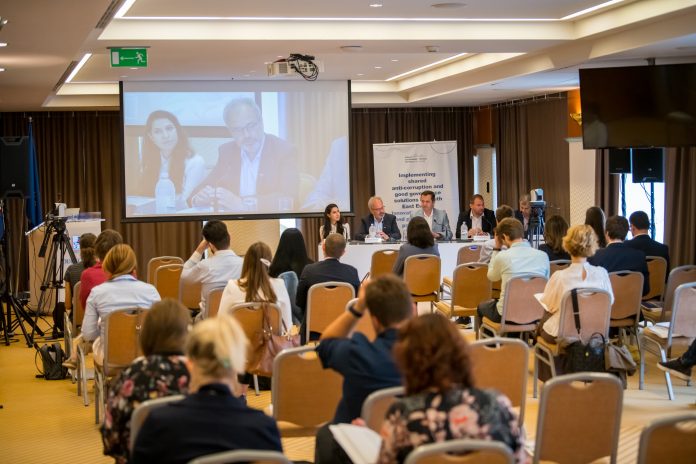The principles of good governance continue to face challenges in the region of Southeast Europe. The war in Ukraine has starkly demonstrated that closing governance gaps is critical to economic development, national security and resilience vis-à-vis external authoritarian threats. International crises such as the ongoing health and gas crises showcased that Southeast Europe is particularly Fighting corruption by establishing comprehensive preventive anti-corruption mechanisms is critical for decreasing the vulnerability of Southeast Europeto jeopardize democratic institutions and destabilize the socio-economic environment. The new EU member states and candidates from the region are among the largest net recipients of EU funding. Yet, democratic backsliding and corruption continue to haunt their societies, and to reduce the internal cohesion and strength of the EU.
The initiative Regional Good Governance Public-Private Partnership Platform[1] (R2G4P) coordinated by the Center for the Study of Democracy, Bulgaria, aims to close anticorruption policy implementation and public procurement gaps across SEE and amplify the impact of the planned increase in EU infrastructure support until 2025.
The Platform held on 7June 2022 in Zagreb the Policy Forum Anti-Corruption and Good Governance in Southeast Europe: Towards Shared Anti-Corruption and Good Governance Solutions, which discussed how the anti-corruption fatigue and entrenched state capture networks can be effectively counteracted. Among the keynote speakers and panelists were Daniel Freund, Member of the European Parliament, Group of the Greens/Europe Free Alliance, Ognian Zlatev, Head of the European Commission Representation in Croatia, Haakon Blankenborg, Ambassador of Norway in Croatia, Guilio Venneri, Team Leader at the Thematic Support Unit – Rule of Law at the European Commission’s Directorate-General for Neighbourhood and Enlargement Negotiations, and Constantine Palicarsky, Head of UNODC Programme Office in Serbia, Nora Mehsen, Sector Officer, EEA and Norway Grants.
Members of the R2G4P Platform presented their first SEE Good Governance Report which focuses on two of the most challenging governance vulnerabilities in the region: the integrity of the public procurement systems and the management of the energy sector. The panelists agreed thatthe levels of corruption and rent-seeking rise in times of crisis. Corruption was also acknowledged as a main challenge in policy implementation in emergency situations. For example, the lack of trust in public institutions has led to low rates of vaccination against COVID-19, while at the same time some companies have benefited by monopolising the procurement contracts in the medical sector. According to the SEE Good Governance Report, a mere five companies in Bulgaria have been awarded 70% of the additional government expenditure, which increased due to the pandemic. High inflation rates would also result in larger procurement amounts, thus presenting yet another red-flag for potential corruption.
[1] The focus will be placed on nine beneficiary countries – Bulgaria, Croatia, Hungary, Romania, Albania, Bosnia and Herzegovina, North Macedonia, Montenegro, and Serbia.


